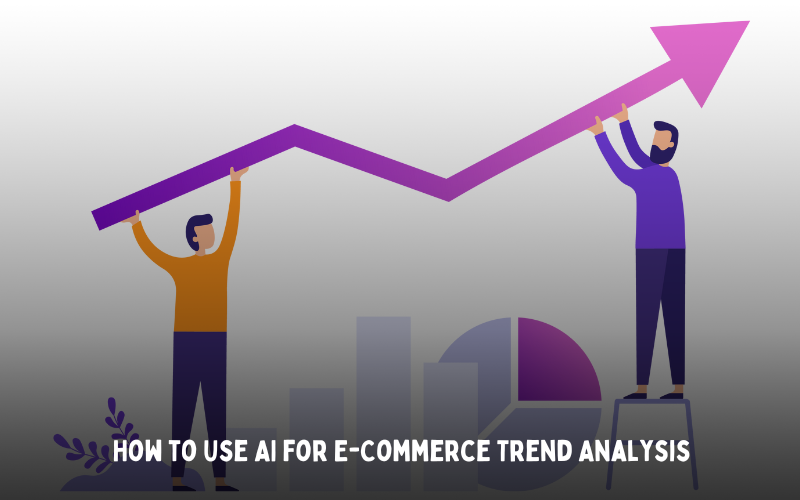In the fast-paced world of e-commerce, staying ahead of market trends is crucial for success. Artificial Intelligence (AI) has emerged as a vital tool for analyzing trends and consumer behavior, providing businesses with insights that drive strategic decisions. This comprehensive guide explores how AI can be utilized for effective trend analysis in e-commerce, ensuring your business remains competitive and responsive to consumer needs.
The Impact of AI on E-Commerce Analytics
AI transforms data into actionable insights, enabling e-commerce businesses to predict and respond to consumer trends with unprecedented accuracy. By integrating AI into your analytics strategy, you can enhance decision-making and optimize your marketing and sales efforts.
Understanding AI-Driven Trend Analysis
What is AI Trend Analysis?
- Definition and Importance: AI trend analysis involves using machine learning algorithms to identify patterns and predict future buying behaviors based on historical data.
- Benefits: Faster and more accurate trend prediction, personalized customer experience, and improved inventory management.
Setting Up AI for Trend Analysis
Integrating AI Tools
- Selecting the Right Tools: Choose AI tools that integrate seamlessly with your existing e-commerce platform and can handle large datasets.
- Actionable Tip: Look for AI solutions that offer both predictive analytics and real-time data processing to keep pace with market changes.
Key Techniques in AI Trend Analysis
Consumer Behavior Prediction
- Technique: Utilize AI to analyze customer data such as past purchases, search patterns, and page views to forecast future buying trends.
- Actionable Tip: Implement machine learning models that refine their predictions over time, improving accuracy as more data becomes available.
Product Performance Forecasting
- Technique: Use AI to predict which products will perform well based on external factors like seasonality, economic indicators, and consumer sentiment analysis.
- Actionable Tip: Regularly update your AI models to incorporate the latest market data and ensure predictions remain relevant.
Leveraging AI for Marketing Optimization
Personalized Marketing Campaigns
- Technique: Deploy AI-driven tools to craft personalized marketing messages based on individual consumer behavior and predicted preferences.
- Actionable Tip: Combine AI with A/B testing to continually refine and optimize your marketing messages and increase conversion rates.
Optimal Pricing Strategies
- Technique: Apply AI algorithms to dynamically adjust prices based on demand forecasts and competitor pricing.
- Actionable Tip: Ensure your AI pricing tools are set to react to real-time market conditions to maximize profitability without sacrificing competitiveness.
Challenges and Solutions in AI Implementation
Data Quality and Integration
- Challenge: Ensuring the AI system has access to high-quality, comprehensive data.
- Solution: Establish strict data management protocols and use AI to help cleanse data for accuracy.
Ethical Considerations and Consumer Privacy
- Challenge: Balancing effective trend analysis with ethical data use and privacy protection.
- Solution: Adhere to data protection regulations and be transparent with customers about how their data is used.
Future-Proofing Your E-Commerce Strategy with AI
Embracing AI for trend analysis not only enhances your current business operations but also positions your e-commerce enterprise for future growth and adaptability. By understanding and implementing AI-driven trend analysis, you can anticipate market shifts, tailor your strategies to meet consumer demands, and maintain a competitive edge in the digital marketplace.
This guide provides e-commerce professionals with the knowledge and tools to effectively integrate AI into their trend analysis, enhancing their ability to make informed, strategic decisions that drive business success.

